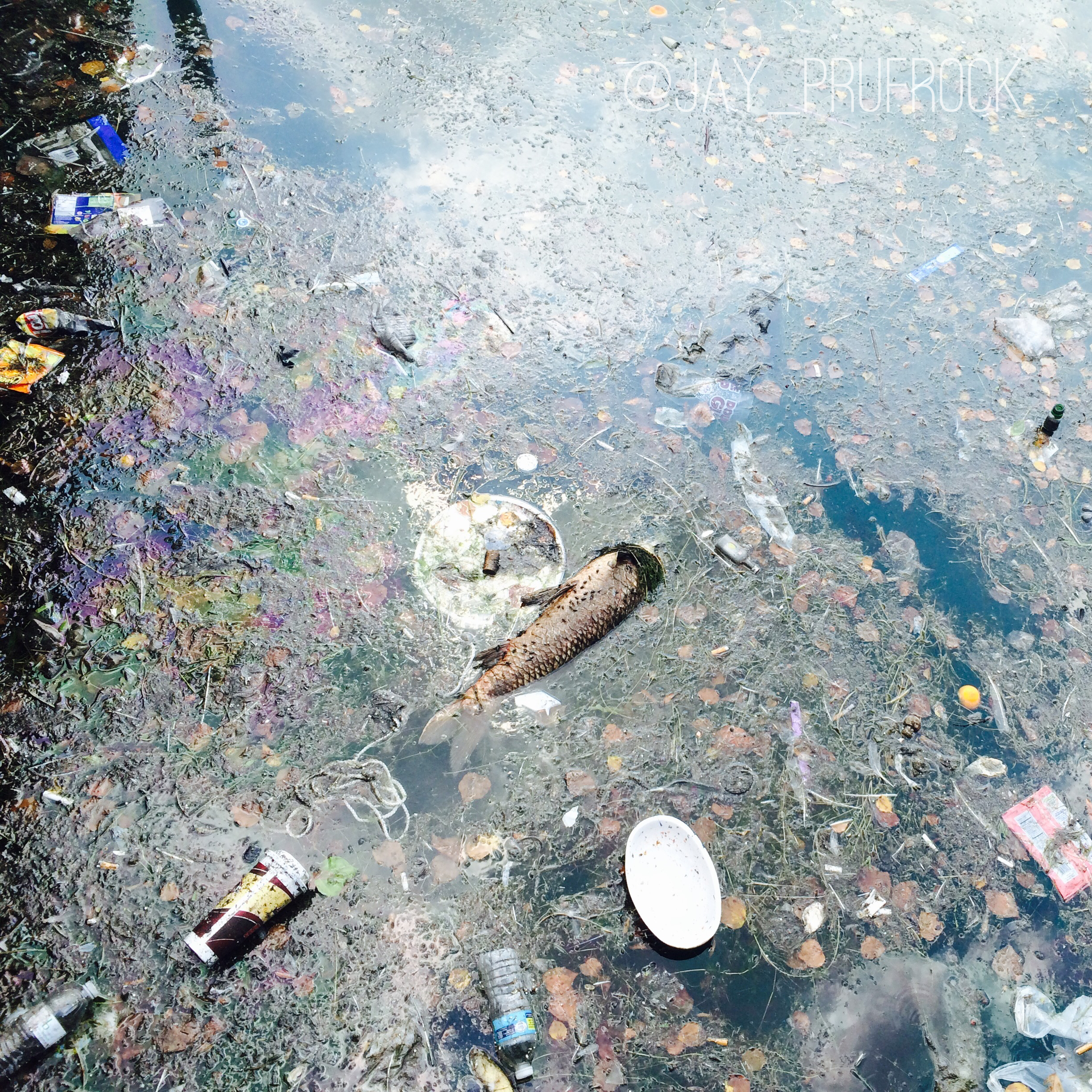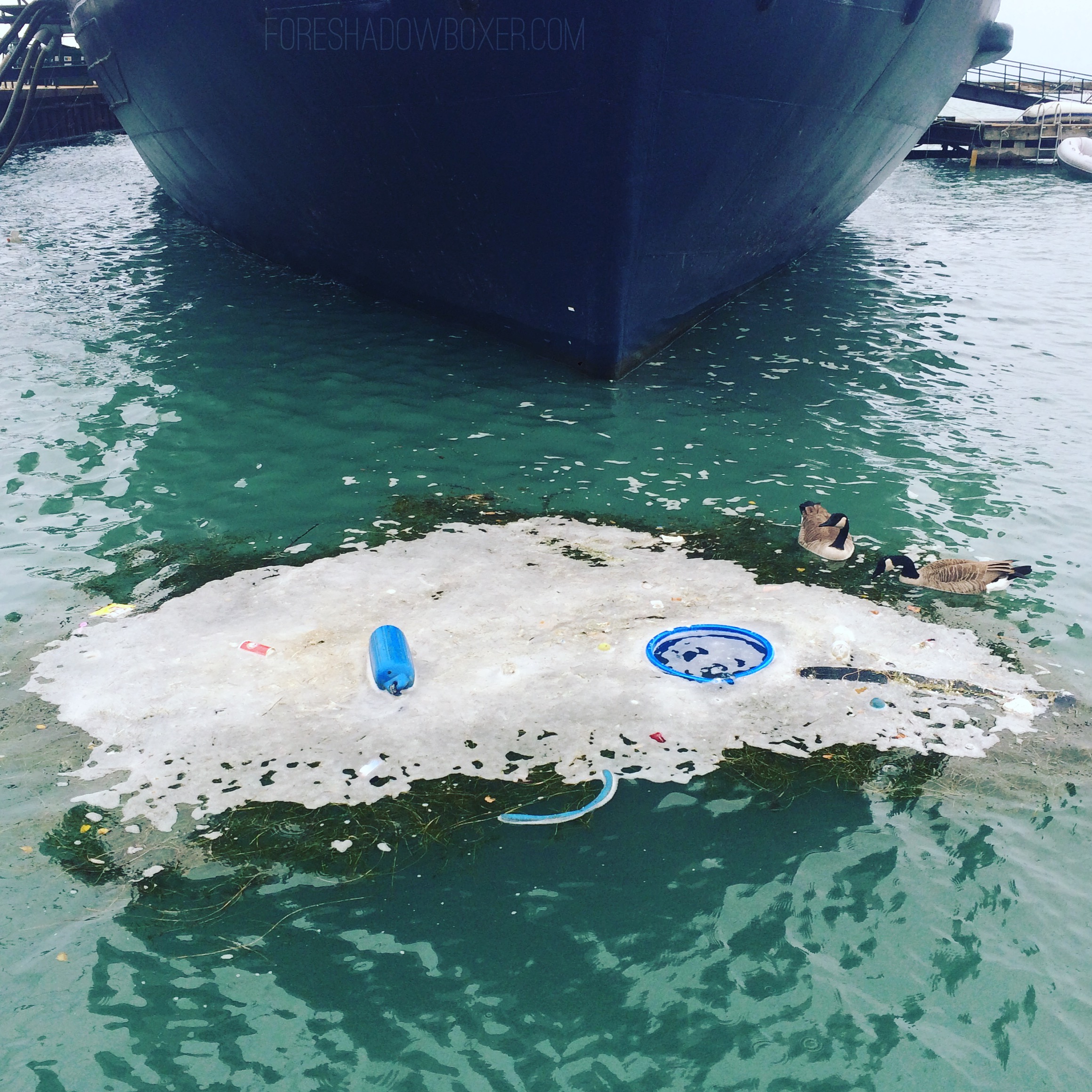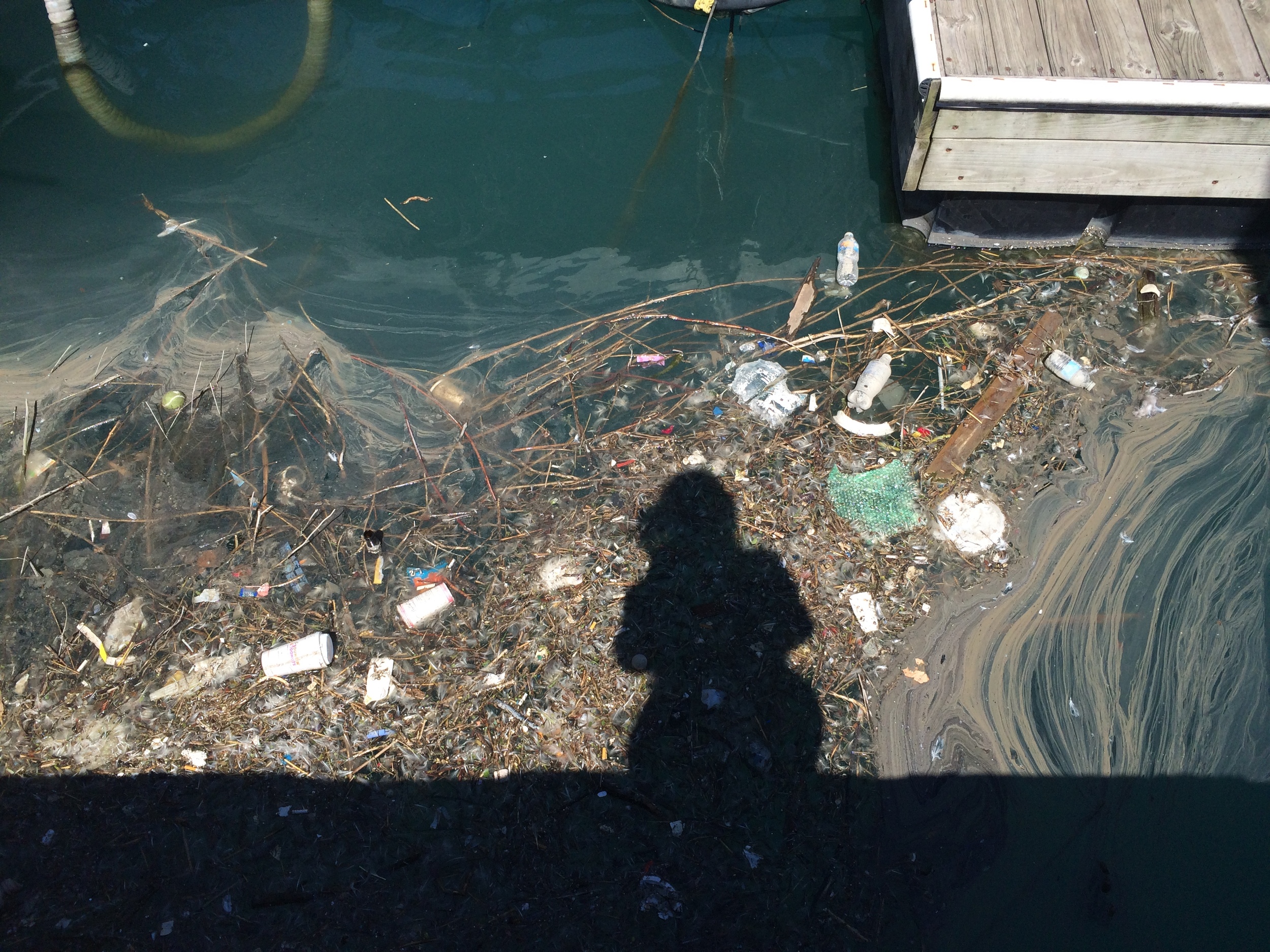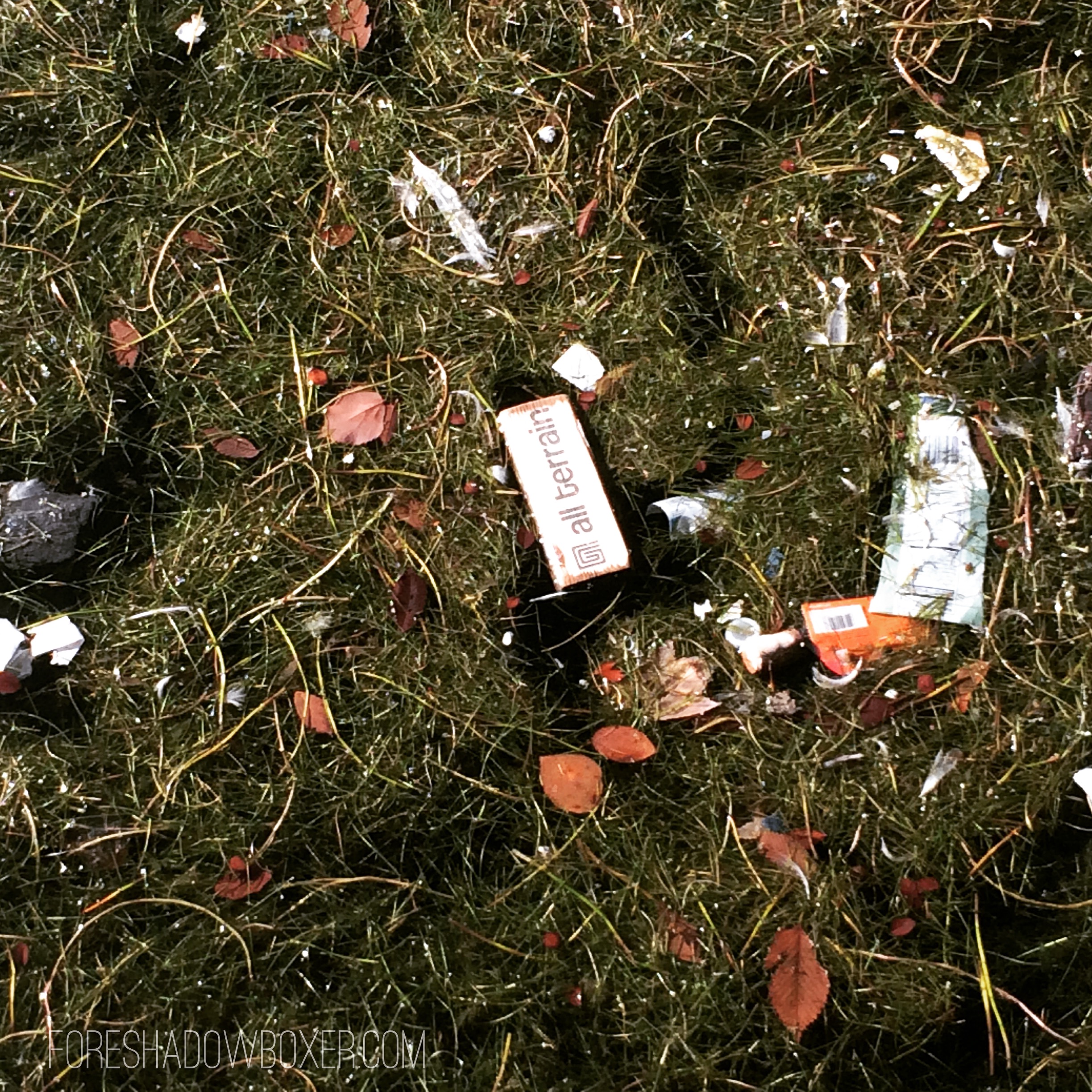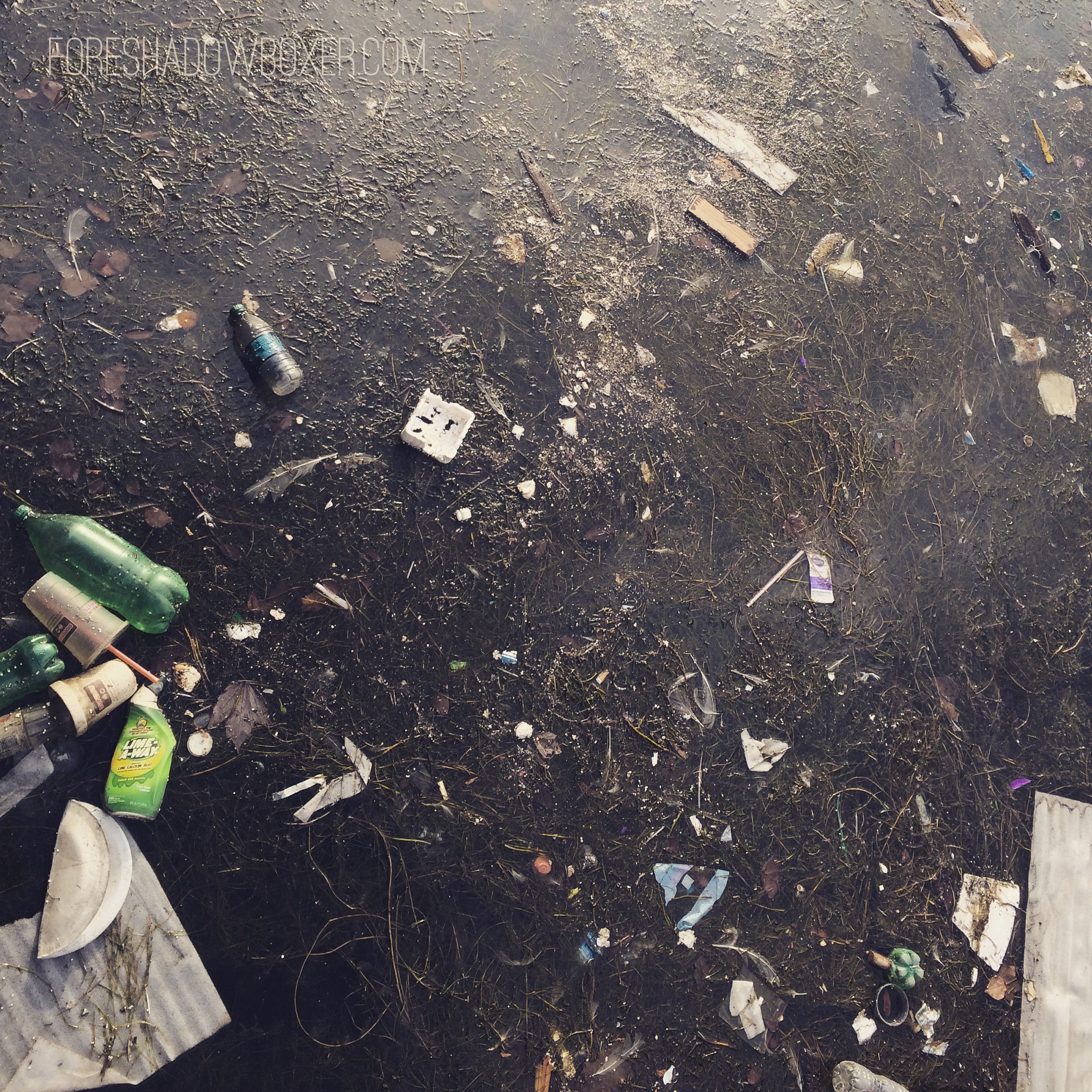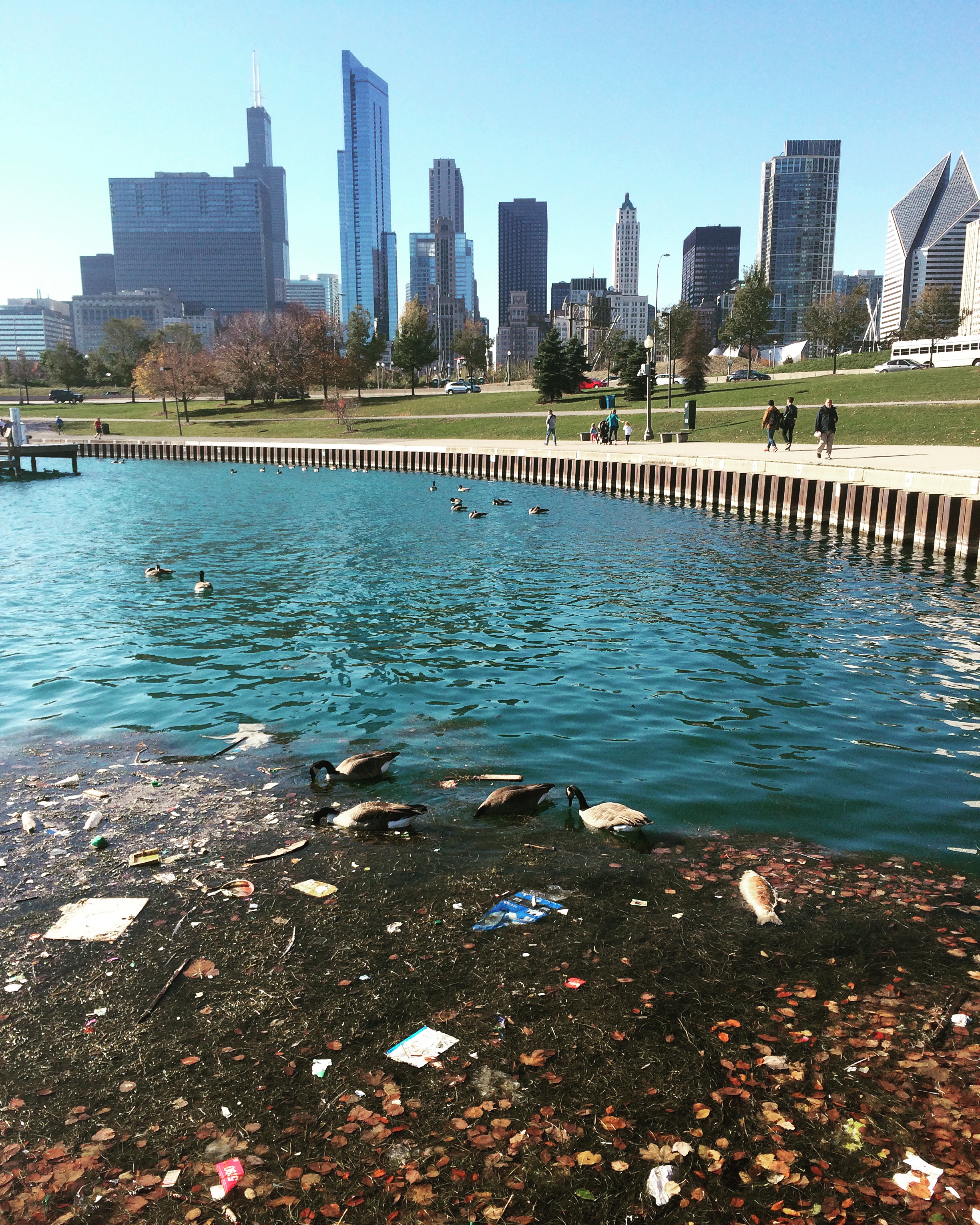BACK TO THE BEGINNING
My 5th grade teacher's social studies experiment went a little like this: she broke us up into small groups and handed each group a stack of cards. Each card contained an ethically based question. You would draw a card, read it to yourself, choose a member of your group that you thought would most likely respond "Yes" or "No" to your question, and would then write down, on a piece of paper, what you thought that person's response would be.
When another student read his card, and directed his question at me, I felt a sort of anxiety I've seldom experienced in the years since.
"If you were an elementary school principal, and a student wanted to enroll who was HIV-positive, would you allow him or her?"
I honest-to-God felt my pulse quicken. My soul split into a million directions. The neurons in my brain were simultaneously processing every bit I'd heard on the news regarding the illness.
Before you judge me too harshly for even being at all conflicted -- rather than shouting a resounding "YES!" -- you should know a few things about the timeline:
- HIV and AIDS were still very new to the public limelight. Treatments were highly experimental, and people weren't living for decades with medication (but rather were dying slow and painful deaths).
- We weren't yet sure how it was transmitted. Sexually and through blood contact, sure, but there were still whispers of saliva, sweat, tears, sneezes, coughs and even mosquito bites.
- This all occurred just a couple towns over from the school district that had shunned Ryan White a few years prior. And so: while internally I felt an abundance of empathy with what I witnessed first-hand, the world around me was awash with rumors and fear.
I couldn't choose. I told my classmate that there were a lot of factors at play, and I'd really need more information on how the virus is transmitted. But in the end, I couldn't dance around the issue. I couldn't offer a "grey" answer.
"It's yes or no," he reminded me.
I repeated my distaste for having to choose, but said that in the interest of "protecting" the other students until we knew more about how you "catch it," my response was "no."
It was a decision I immediately regretted.
I cannot forget the look on my classmate's face, even after all of these years, as he showed me the piece of paper where he'd written down, "She'll say yes."
"If there was anyone at this school who would've said 'yes,' I thought it'd be you," he said.
He looked at me for a moment, a quiet disappointment on his face, and a silence fell between us.
I was ashamed.
It was truly a pivotal moment in my life, and I decided -- then and there -- to always strive to err on the side of kindness, even in the face of fear.
Because, more often than not, it is the right thing to do.
AND SO IT GOES
I haven't always succeeded, to be sure. I am more sinner than saint, and live every day in conflict between who I am, and who I want to be. But I never lose sight of the latter and that, I think, is perhaps most important.
It's an idea that screams at me now. This desire to do something more, to help people, to make the world a better place.
I've felt it every time I've read about a Syrian refugee losing their life when trying to escape their war-torn county. I felt it when, last Friday morning, I read about a bombing in Baghdad. And then again when I was reading about a similar attack in Beirut. I was reading about the 40+ lives lost there when the article vanished from the front page, and was replaced with stories regarding the series of attacks unfolding in Paris..
The feeling deepened, my heart transported across the ocean and delivered to the people of France.
And I feel it now, no less strongly than last Friday, as I see governors around the United States (what is it now? 27?) closing their doors to Syrian refugees -- for fear that one might be a terrorist in disguise.
I understand their fear. I have felt that fear.
And it disgusts me.
GIVE ME YOUR TIRED
Give me your tired, your poor, Your huddled masses yearning to breathe free, The wretched refuse of your teeming shore. Send these, the homeless, tempest-tossed to me, I lift my lamp beside the golden door!
Associated Press
We could discuss, in great detail, the ironies inherent in the inscription on the Statue of Liberty, gifted to us by France in 1886, and the words and actions of those 27 governors. But you've heard this argument before, and a great many of you are tired of hearing it.
We could talk about the story of a poor Middle Eastern couple turned away from every door they approached when attempting to find a home for their son, some 2,016 years ago. But I'd wager you've heard that one before too, and are currently busy with your related shopping lists.
So let's return to my childhood for a minute. There were two lessons repeatedly taught to me by my parents that I have long mistaken as being universal. But the more I read the headlines, the more I'm beginning to think my parents passed something along to me that not everyone was fortunate enough to learn as a kid:
- Always wear clean underwear in case you're in an accident (I still don't understand why this one is so important, Mom).
- There are good and bad people of all races and religions. In other words: don't judge people by the color of their skin or which religious text they follow, because -- as much as these two factors might help inform their personality -- there's more to every person's story.
If you think my parents brainwashed me with that one, I gotta say: it's the best kind of brainwashing there is. And I'm grateful for it.
A REALIST AT HEART
I am not deluded. I have educated myself on the enemy. I have read about their "grey zone" and the desire to turn the world against moderate Muslims (who, for the record, they despise perhaps even more than they despise you and me). I know that they will stop at nothing to further their agenda, to split the world in two, to sow distrust when we need unity above all other things.
And I know that plan could entail disguising one of their own as a refugee. It happened in Paris, it seems, and the fear is real. And now tens of thousands of homeless people are paying the price.
Distrust widens. Unity weakens. And the enemy's plan falls into place.
It's up to us to not allow that to happen. It's up to us to treat people as we'd wish to be treated. To help our neighbors -- whether they're across the street or across the globe -- when they need a hand.
And here's the real kicker: if you don't think the enemy is already here, you're sadly mistaken. They told us themselves, months ago, when they posted pictures their "army" took at various cities around the United States.
They're here. And we continue to engage in "prejudicial ideologies" (to quote a well-known quarterback who gained at least one new fan last weekend) that not only helped create the situation we're in today, but also furthers the enemy's agenda. By turning your back on all Muslims, you're supporting their cause. And you don't even realize it.
HERE'S WHERE I GET ANGRY
No, not at you. Chances are I respect your opinion, even if we disagree (and based on the vast majority of my newsfeed, odds are we don't see eye-to-eye on this). And, yeah, I'm angry at the enemy for what they've done and continue to do, but that's a given.
What I'm really angry about is the devastatingly large size of our weapons, versus the size of our intelligence. Let's work with our allies. Let's be smart. Let's crack codes. Let's pinpoint with absolute certainty the location of our target, and leave the schools and hospitals intact. OK?
Because when you bomb those, you're not just killing hundreds of innocent people (which seems horrible enough, no question). You're also sowing distrust and perpetuating a cycle that must be stopped.
TO BE CONTINUED
You're scared and want to protect your family, your friends, yourselves. I understand that. I really do. But to mask a desire to protect those you care about with a blanketed hatred for thousands of people that are not only without houses, but without a country?
That, I cannot understand. And if that, as a people, is who we are? It is not who we should be.
I said it after the attacks on Paris, and I'm saying it again:
We are, at our core, so much better than all of this.
And we must never forget it.
Associated Press






